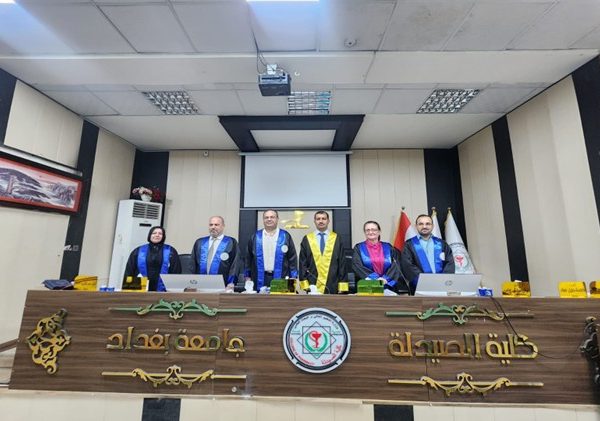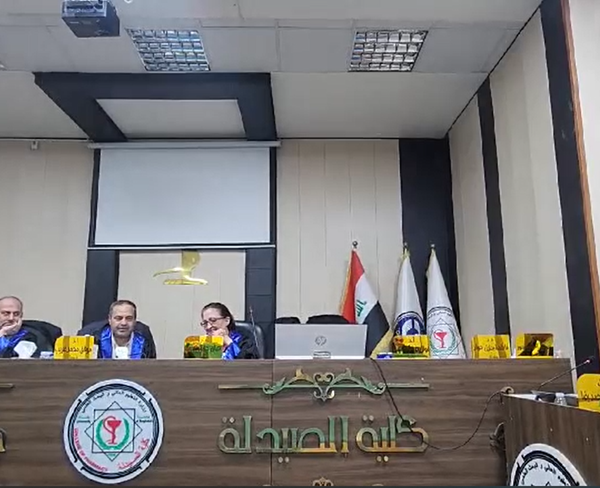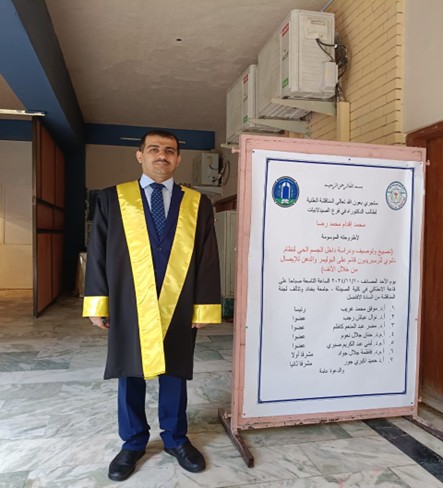The College of Pharmacy discussed the PhD dissertation entitled “Preparation, Characterization, and in Vivo Study of Risperidone Polymer-Lipid-Based Nanovesicular System for Brain Delivery” by the student Mohamed Iqdam and the supervisor Assistant Professor Dr. Fatima Jalal at the Pharmaceutics Department and Professor Dr. Hamid Akbari Javar from the College of Pharmacy, Tehran University of Medical Sciences. The study aimed to develop a polymer-lipid nanovesicular system for risperidone to enhance brain delivery via intranasal administration, overcoming the blood-brain barrier, and reducing drug concentration in non-target organs. The system was prepared using eco-friendly direct sonication at 63°C, incorporating Span 60, cholesterol, and dicetyl phosphate. The selected formulation, N4D2, showed a mean particle size of 194 nm, a zeta potential of -20 mV, and a 51% entrapment efficiency. Attempts to improve the formulation with stearic acid, hyaluronic acid, and PEG 4000 led to instability. Polyvinyl alcohol (PVA) was added, with 25 mg proving optimal, resulting in the PVN1 formulation. PVN1 demonstrated a mean vesicle size of 213 nm, a zeta potential of -28 mV, and a 71% entrapment efficiency. TEM and FTIR confirmed the vesicular structure and absence of drug-excipient interactions. Confocal microscopy and bioimaging studies highlighted PVN1’s effective nasal tissue penetration and reduced biodistribution in non-target organs. Pharmacodynamic studies in ketamine-induced schizophrenic Wistar rats indicated that intranasal PVN1 matched intravenous risperidone’s efficacy in open field tests and outperformed it in wire hanging tests with fewer side effects. The study concluded that the PVN1 system offers an efficient and stable alternative for brain delivery of risperidone. The study recommends the possibility of using polymer-lipid nanovesicular systems for targeted brain drug delivery, promising improved therapeutic outcomes with minimized systemic exposure.





